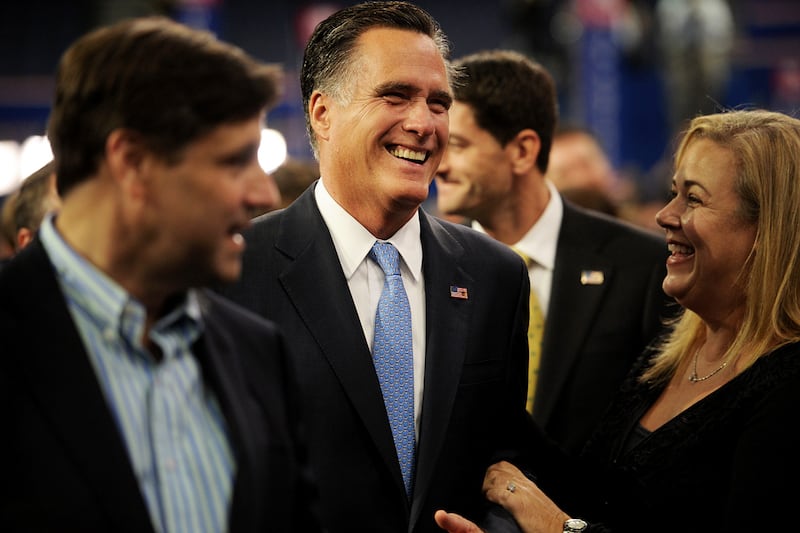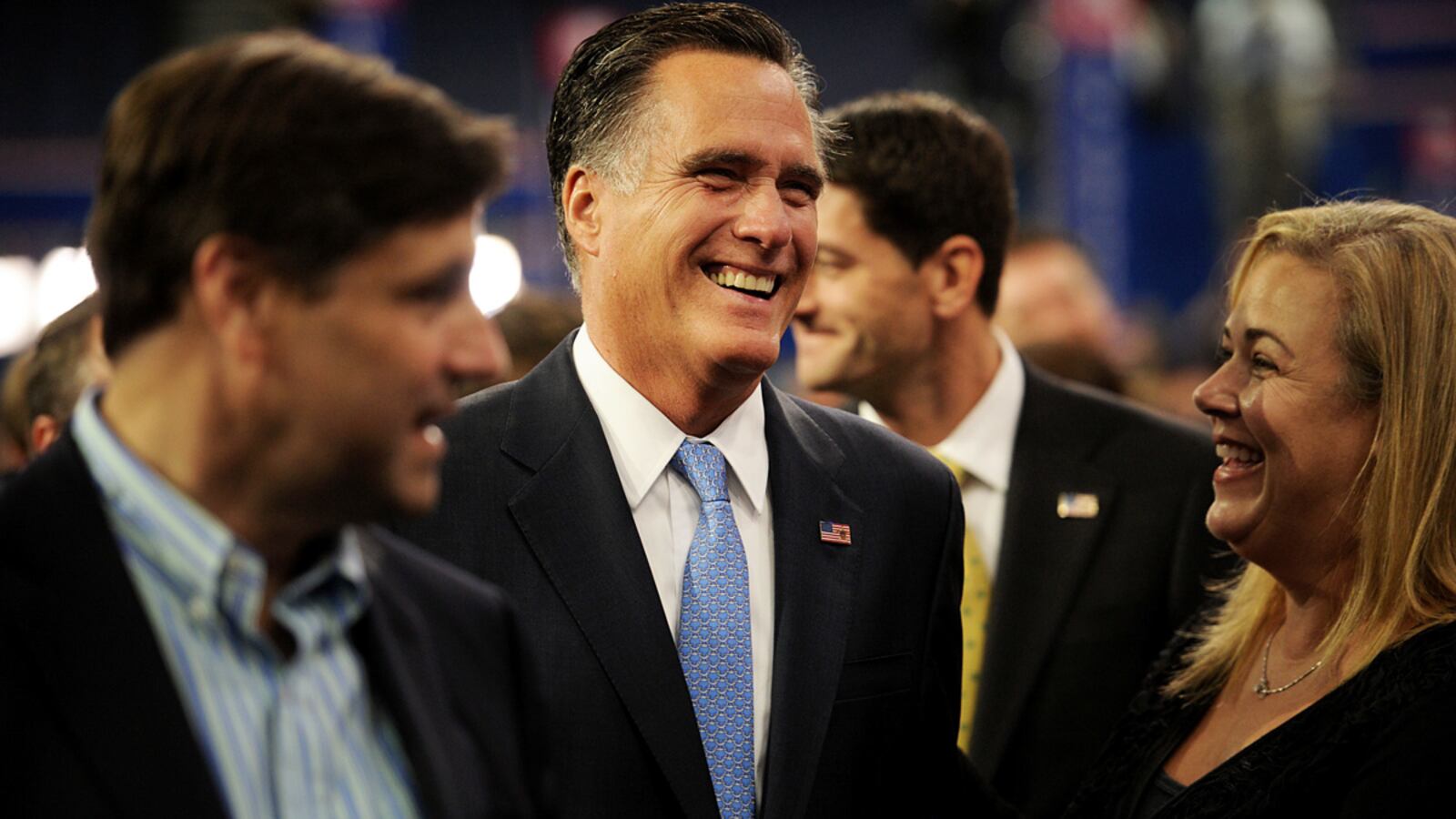As Mitt Romney became the first Mormon to accept a major-party presidential nomination Thursday night, his co-religionists in Tampa were both proud and concerned.

“These things have a way of being polarizing to an extent,” said Scott Jenkins, the senate majority leader of the Utah legislature, a delegate to the Republican National Convention, and a devout member of the 182-year-old, historically persecuted Church of Jesus Christ of Latter-day Saints. “Those who hate us will probably really hate us now. Those who like us will like us, and those that don’t know us will be interested.”
Internet marketing entrepreneur Tommy Jackson, a married father of two who is in the process of moving to San Francisco, said he’s happy about all the attention being focused on this little-understood, 14 million-member religion founded by Joseph Smith, an itinerant treasure-digger until he became a prophet—and later a martyr, assassinated by an anti-Mormon mob.
“We want people to understand our beliefs a little bit, to understand who we are, and make it a little bit more mainstream,” Jackson said as he stood in the lobby of the airport Hilton, the headquarters of the Utah delegation, with his brother Billy, a recent Stanford Law graduate who is clerking for federal judge in Philadelphia. “Our goal is to fit in just like anybody else,” Tommy Jackson continued. “We don’t want people to be spooked and have some insecurities about us and not want to talk about it.”
Rep. Jason Chaffetz, a Mormon convert who has represented Utah’s 3rd Congressional District since 2009, said he’s pleased that so far, “the religious question hasn’t been demonized and used as a political weapon. I hope that our country has grown up a bit. But I shudder to think that maybe with 40 days to go [before the Nov. 6 election], they will suddenly try to play the religious ‘scare card’ in desperation.”
By “they,” Chaffetz added, he doesn’t necessarily mean President Obama’s campaign organization—just the vast left-wing conspiracy that can’t abide the prospect of Romney in the White House. Chaffetz said he was especially alarmed by an atheist group that has bought billboard space outside Charlotte, N.C., site of next week’s Democratic convention, to mock the Mormon practice of wearing religious undergarments as glowing “magic underwear.”
So far, the Republican convention’s official program has muted the Mormon presence. It wasn’t until the final night, when the former Massachusetts governor was to deliver his acceptance speech, that a Mormon cleric was scheduled to give the opening prayer. Among this week’s speakers, only Rep. Paul Ryan of Wisconsin, Romney’s running mate, and former Arkansas Gov. Mike Huckabee, a Baptist minister, made oblique references to Romney’s faith.
The only two Mormons conspicuously on the program were Chaffetz, the son of a Jewish father and Christian Scientist mother (who jokes that he grew up celebrating Halloween as a religious holiday), and Saratoga Springs, Utah, Mayor Mia Love, a Haitian-American and another convert.
“We try very hard to be viewed as mainstream and just Christians,” said Jenkins, who as a young man was sent on a mission to Chicago—an experience that toughened him to criticism of his faith. “Having spent time out in the field, you develop a thick skin. It’s very humbling really. You go out there and believe deeply in what you’re doing, and people slam the door and speak ill to you. It bothers you, but then you realize you’re not only fighting for your values, you’re fighting for their values.”
Like Romney himself—in a December 2007 speech at the George H.W. Bush Presidential Library at Texas A&M University—these Utahans compared his groundbreaking ascension to that of John F. Kennedy, the first Roman Catholic president. They hope for a chance to clear up misconceptions.
“I welcome it,” said Renae Cowley, a 23-year-old Republican fundraising consultant from the Ogden area—also Utah’s former “Rodeo Queen” and a competitive barrel-racer. “I think it’s a good opportunity for a very misunderstood religion to show our faith and our values and to demonstrate that we don’t have horns, that we don’t have seven wives and that type of thing.”





